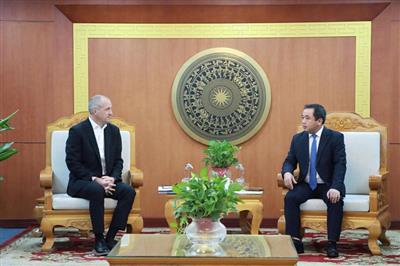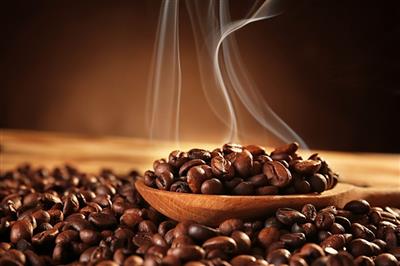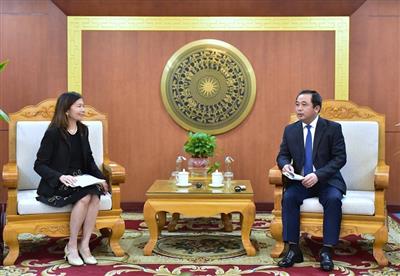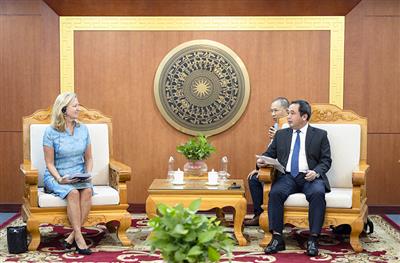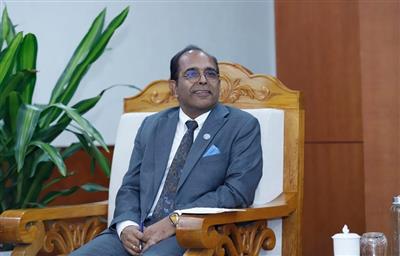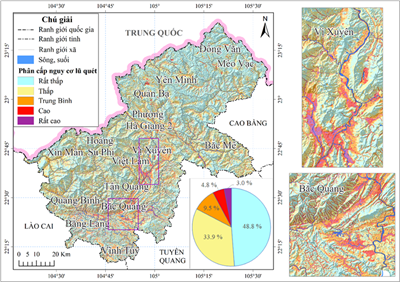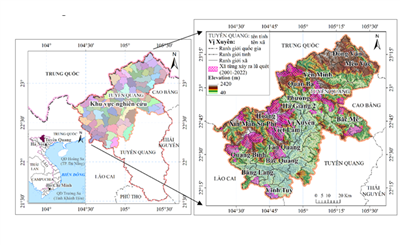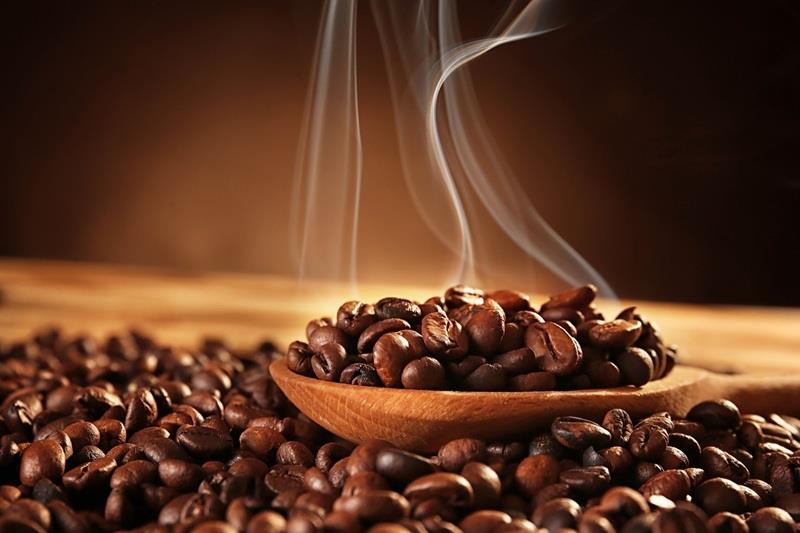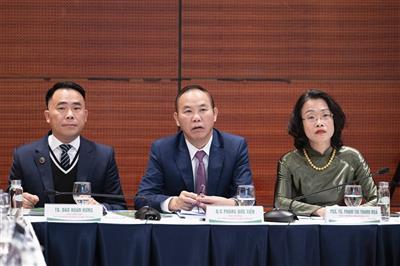
Advancing strategic agricultural cooperation: Vietnam expands ties with the Netherlands and Saudi Arabia
11/06/2025TN&MTAs part of his official visit to the Netherlands, Deputy Minister of Agriculture and Environment Phung Duc Tien engaged in a series of high-level diplomatic activities to strengthen the strategic partnership between Vietnam and the Netherlands in agriculture and environmental sectors, while also expanding connections with potential partners in the Middle East. Bilateral meetings, business dialogues, and participation in GreenTech Amsterdam 2025 highlighted Vietnam’s concrete efforts in transitioning toward a green, circular, and sustainable agricultural model.
Towards a 2025–2035 strategy for agriculture–environment cooperation
At a meeting with State Secretary Jean Rummenie of the Dutch Ministry of Agriculture, fisheries, food security and nature, on June 10 (local time), Deputy Minister Phung Duc Tien praised the Netherlands—home to one of the world’s most advanced agricultural sectors—for its longstanding support in helping Vietnam modernize production systems, improve infrastructure, adapt to climate change, and ensure food security. He emphasized that over the past decade, the two countries have built a deeply rooted and effective partnership, underpinned by strategic bilateral frameworks.
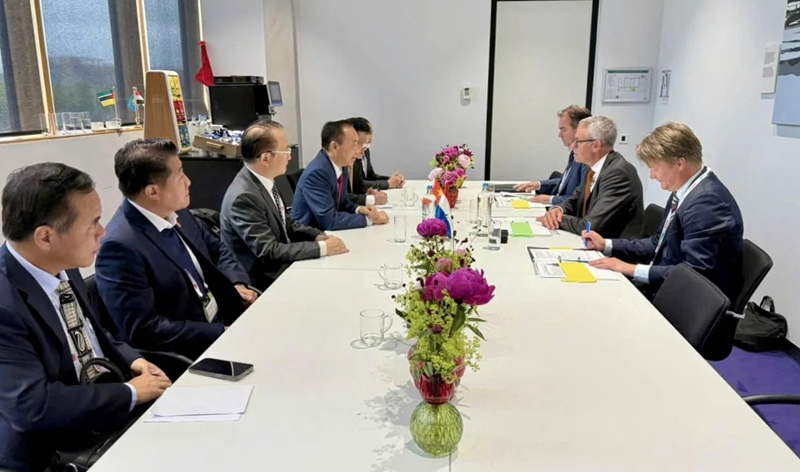
Deputy Minister Phung Duc Tien meets with State Secretary Jean Rummenie of the Dutch Ministry of Agriculture on June 10, highlighting the Netherlands’ strong support for Vietnam’s agricultural modernization and climate resilience (Photo: ICD)
In 2024, Vietnam and the Netherlands mark 5 years of comprehensive partnership (2019–2024) and ten years of strategic partnership on sustainable agriculture and food security (2014–2024). Looking ahead to 2025, the two countries will also celebrate 15 years of cooperation in climate change adaptation and water management—a hallmark of their enduring friendship and shared long-term vision.
Building on this foundation, Deputy Minister Phung Duc Tien proposed developing a 2025–2035 agriculture–environment cooperation strategy centered around five pillars. Key among them is promoting joint research in precision agriculture and breeding climate-resilient crops and livestock. These initiatives are expected to involve leading research institutes, universities, and businesses from both countries, serving as a bridge between science and practical application.
He also called for enhanced cooperation on circular agriculture and sustainable value chains, including agricultural by-product reuse, bioenergy production, post-harvest loss reduction, and greenhouse gas mitigation. Another critical area is the development of modern agri-trade infrastructure such as transshipment ports, cold logistics, and transparent quarantine and traceability systems aligned with international standards—enabling Vietnamese agricultural products to reach global markets.
Human capital and business linkages as core drivers
In human resource development, Deputy Minister Phung Duc Tien encouraged further expert exchange programs, vocational training, and technician development in agricultural technologies. He proposed the establishment of advanced vocational training centers tailored to local needs.
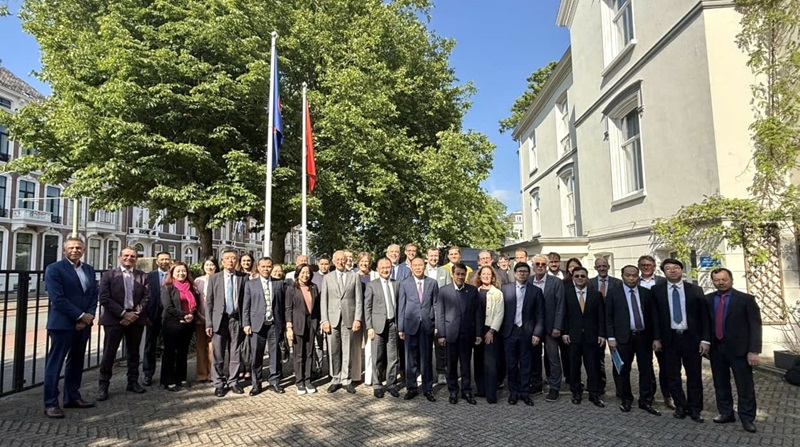
The delegation of the Vietnamese Ministry of Agriculture and Environment, led by Deputy Minister Phung Duc Tien, poses for a photo with staff of the Vietnamese Embassy in the Netherlands and representatives from businesses and associations (Photo: ICD)
In response, State Secretary Jean Rummenie expressed full agreement with Vietnam’s proposed cooperation directions. He emphasized the central role of high-quality human capital, scientific innovation, and technological advancement in building a green, resilient, and sustainable agricultural future. The Netherlands, he affirmed, is ready to continue supporting Vietnam in this transformative journey.
Following the bilateral meeting, the Ministry of Agriculture and Environment hosted a Vietnam–Netherlands agriculture cooperation dialogue, gathering more than 30 Dutch enterprises, associations, and organizations in agricultural science, technology, and trade. The dialogue served not only to explore investment opportunities but also to expand the public–private cooperation space, foster innovation and entrepreneurship, and develop market-oriented agricultural products.
Strengthening agricultural cooperation with Saudi Arabia
Another highlight of the visit was Deputy Minister Phung Duc Tien’s participation in GreenTech Amsterdam 2025—the world’s leading exhibition on horticultural and agricultural technologies. On the sidelines of the event, he held a bilateral meeting with Dr. Abdulaziz bin Malek Al Malek, Deputy Minister for Research & Innovation, Saudi Ministry of Environment, Water and Agriculture.
The two sides discussed potential avenues for bilateral cooperation in agriculture and food. Vietnam expressed its intention to boost chicken meat exports to Saudi Arabia, meeting the stringent Halal standards, and to expand seafood exports—especially shrimp—leveraging the region’s substantial market potential and rising demand.
Deputy Minister Abdulaziz bin Malek Al Malek welcomed Vietnam’s proposals and affirmed his support for increasing product lines aligned with Saudi and regional consumer preferences. He also invited the Ministry of Agriculture and Environment of Vietnam to participate in the 42nd Saudi Agriculture Exhibition— the largest agricultural event in the region—scheduled for October this year.
As global climate change continues to disrupt food systems, Vietnam is taking steady steps toward a more responsible, high-tech, and environmentally friendly agriculture that delivers higher added value.
Deputy Minister Phung Duc Tien’s mission to the Netherlands, along with bilateral activities at GreenTech Amsterdam 2025, not only reflects Vietnam’s commitment to international integration in agriculture but also opens up practical cooperation opportunities to enhance Vietnam’s role in the global agricultural value chain.
Minh Thảo


